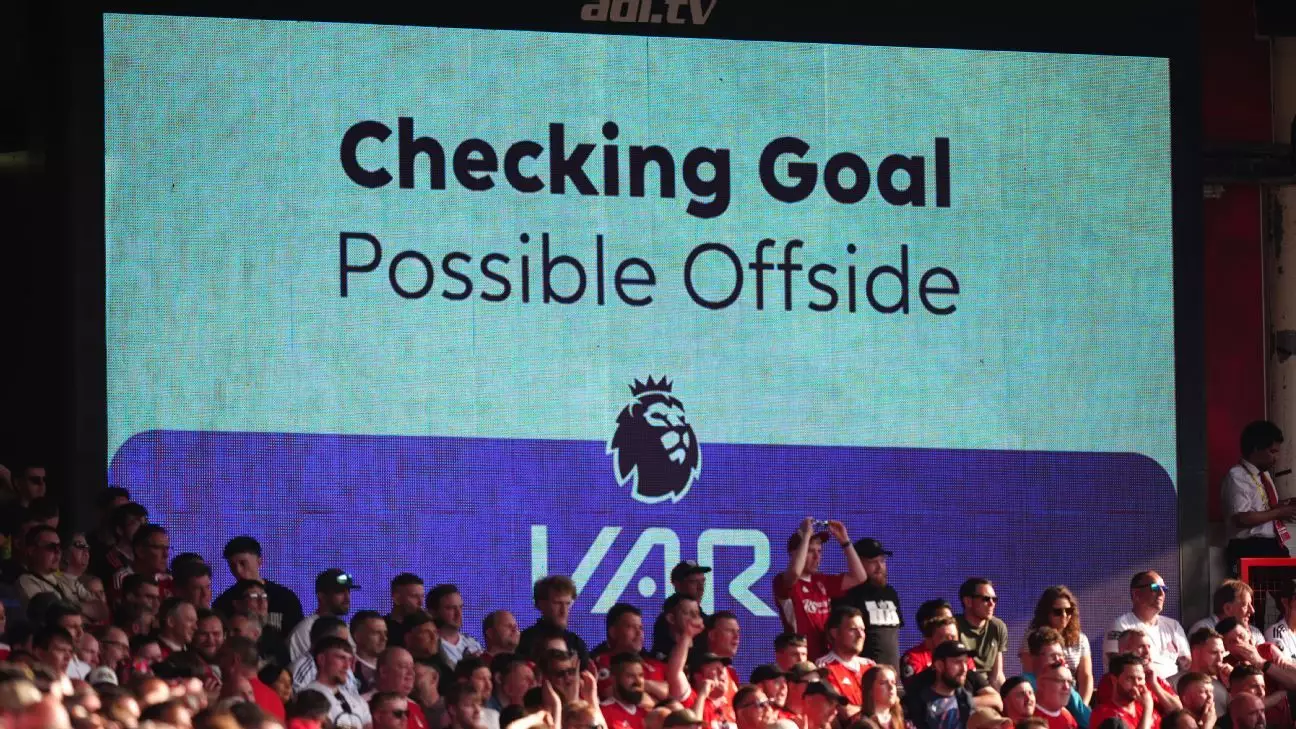Nottingham Forest’s recent turmoil stemmed from their reaction to a seemingly contentious refereeing decision during an intense match against Everton. This fixture, played on April 21, 2023, was pivotal in the context of Premier League relegation, drawing both teams into a fierce battle for survival. Following their 2-0 loss, Forest took to social media to express their frustration over decisions made by video assistant referee (VAR) Stuart Attwell, leading to a sizeable fine of £750,000 imposed by the Football Association (FA). The club’s subsequent labeling of this penalty as “wholly disproportionate” illustrates the tension existing between football clubs and regulatory bodies when it comes to officiating standards.
The crux of Nottingham Forest’s grievance lay in their claims of multiple refereeing errors, specifically relating to three penalty appeals against Everton’s Ashley Young. In their social media post, they suggested biases in officiating, stating that the VAR, Attwell, is a Luton Town fan. Such comments have raised questions not only about the decisions made but also about the integrity of the officiating process itself. By directly associating a fan’s allegiance with a negative outcome in officiating, Forest ignited a firestorm over the appropriateness of such remarks in professional football.
The club’s management later stressed that they believed the post did not imply any bias, which was a central concern for the FA. Nevertheless, the regulatory authority found the comments to constitute improper conduct, breaching FA Rule E3.1. This provision condemns any action that undermines the integrity of match officials, and thus, Forest’s actions faced punitive measures. The implications of the ruling highlight a crucial aspect of modern football governance: the balance between freedom of speech for clubs and the need to preserve the sport’s integrity.
Nottingham Forest’s leadership articulated a sense of injustice regarding the FA’s conclusions. Their formal statements echoed dissatisfaction not just with the fine itself, but also with the process that culminated in such sanctions. They described the FA’s pursuit of an even higher penalty, exceeding £1 million, as indicative of an excessive approach to clubs’ responses to officiating controversies. In a sport where emotions run high, particularly during relegation fights, it is no surprise that clubs feel compelled to voice their dissatisfaction.
Moreover, Forest’s management, led by coach Nuno Espirito Santo, emphasized the need for meaningful dialogue regarding officiating standards. Santo’s comments underscored a collective sentiment among clubs fighting for survival; the pursuit of fairness and accountability should be prioritized to ensure every team has a fair chance, especially in high-stakes matches.
Expert Insights and the Role of Former Referees
Adding another layer to this dispute was the involvement of Mark Clattenburg, a former prominent referee and then-referential consultant for Nottingham Forest. His public defense of the club’s position and harsh critique of VAR decisions prompted further scrutiny. In his column, Clattenburg labeled the officiating decisions against Forest as a “hat trick of howlers.” His remarks not only reinforced Forest’s perspective but also drew attention to significant lapses in officiating oversight.
The incident raises questions about the role of former referees who enter the media landscape. Their insights can be invaluable, but they also risk deepening rifts between clubs and the refereeing community. Clattenburg’s eventual departure from his consultancy position with Forest reveals the potential backlash that arises when former officials challenge the current refereeing standards publicly.
Currently, Nottingham Forest is gearing up to appeal the FA’s decision. This move reflects a broader struggle faced by clubs navigating the increasingly complex relationship with officiating bodies. As the situation develops, it could have lasting implications for how such disputes are handled in the future.
Clubs need to be cautious when expressing their grievances, balancing the need for accountability with the risks of disciplinary action. The FA, on their part, must consider the pressures faced by clubs in high-stakes situations, ensuring their measures do not inadvertently stifle legitimate concerns.
Nottingham Forest’s hefty fine serves as a microcosm of the ongoing battle between clubs and officiating authorities. As the appeals process unfolds, it may very well set precedents for how clubs interact with refereeing protocols and channel their frustrations in a manner that both preserves the dignity of the sport and advocates for accountability.

